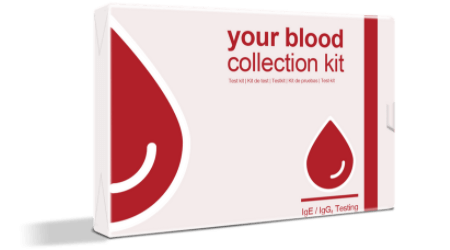What is Crohn’s Disease?
Crohn’s disease is a condition that causes inflammation in the gastrointestinal tract. This inflammation can cause redness, swelling and pain. Crohn’s is one of the two major forms of IBD (inflammatory bowel disease). The other condition is Ulcerative Colitis. Crohn’s is often described as a chronic condition, although sufferers may experience bouts of remission and flare-ups, so symptoms aren’t necessarily constant.
Roughly 1 in 650 people have Crohn’s disease. It can be hereditary, so if a member of your family is diagnosed with the condition, it’s worth getting tested yourself. Crohn’s disease causes symptoms such as diarrhoea, abdominal pain, weight loss, and malnutrition.
How Can IgG testing help?
This study found that Crohn’s Disease patients had a higher prevalence of food-specific IgG antibodies compared to both the healthy control and Ulcerative Colitis patients. It also concluded that Food-specific IgG antibodies could be a method of diagnosis and management of food intolerance for people with Inflammatory Bowel Disease. The same study found Crohn’s disease patients most likely to suffer from intolerance to rice, soy, tomato and corn.
As Crohn’s disease sufferers are more likely to develop these intolerances, proper testing is ideal. While the aforementioned foods are those which Crohn’s patients are most likely to be intolerant to, this doesn’t mean all patients with the condition will have all or just these food intolerances. So IgG intolerance testing can help determine which foods are problem foods and which aren’t – there’s no point in needlessly restricting the diet.
Low-FODMAP Diets
A few studies have looked into the efficacy of a Low-FODMAP diet in managing IBS-like symptoms experienced by IBD sufferers. They have so far found that a diet low in FODMAPs to be more effective than the more commonly recommended Gluten-free diet.
“Evidence from unblinded and observational studies regarding the efficacy of reducing FODMAP intake for IBS‐like symptoms in patients with quiescent IBD is compelling despite the lack of high‐quality evidence…” – Peter R Gibson, 28 February 2017
While there’s definitely a need for further research, the evidence so far suggests that a Low-FODMAP diet, perhaps guided by IgG intolerance testing, could help individuals with Crohn’s Disease manage their symptoms. At the very least, it’s definitely helpful in managing and minimising any IBS-like symptoms.



